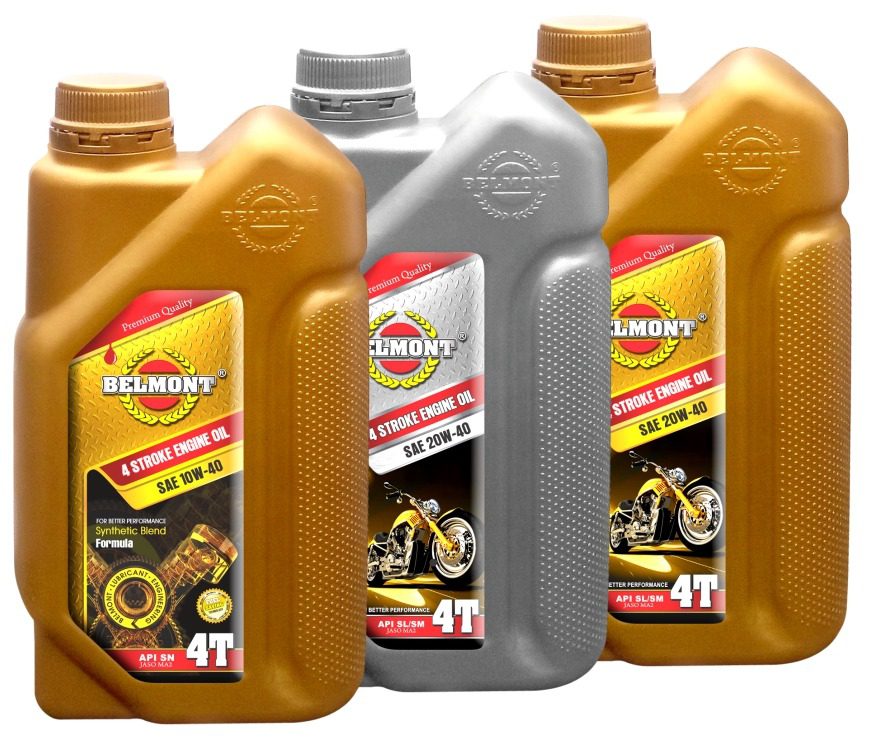
Introduction
When it comes to motorcycle maintenance, engine oil is one of the most important decisions riders need to make. Choosing the right viscosity grade can directly impact engine protection, fuel efficiency, and performance. Among the most common choices, riders often ask: Which is better 10W30 or 10W40 engine oil for motorcycles?
In this guide, we will compare 10W30 and 10W40 engine oils in detail, understand their differences, and help you decide which one is right for your bike. Whether you own a commuter motorcycle or a high-performance sports bike, this article will clear all your doubts.
For high-quality lubricants, visit Belmont Lubricants, a trusted engine oil and grease manufacturer in India.
Understanding Engine Oil Viscosity: What Do 10W30 and 10W40 Mean?
Before comparing, it’s important to decode what these numbers mean:
- 10W: The “W” stands for winter. The number before it (10) represents the oil’s viscosity at cold temperatures. Both 10W30 and 10W40 perform equally well during cold starts.
- 30 vs 40: This represents the oil’s viscosity at operating temperature (100°C).
- 10W30 is thinner at high temperatures.
- 10W40 is thicker and provides extra protection in hotter conditions.
So, the difference lies in the second number, which indicates how thick the oil remains when the engine is running hot.
10W30 Engine Oil for Motorcycles: Benefits and Best Use
10W30 is commonly recommended by leading motorcycle manufacturers like Honda and Yamaha for commuter bikes.
Advantages of 10W30 Engine Oil
- Improves fuel efficiency due to lower resistance.
- Flows faster in colder weather, ensuring quick lubrication.
- Ideal for daily commuting and moderate riding speeds.
- Reduces engine drag, improving mileage.
When to Use 10W30
- Best suited for city riding and moderate climates.
- Perfect for motorcycles designed for efficiency rather than high performance.
- Recommended for bikes with smaller engine capacity (100cc–250cc).
10W40 Engine Oil for Motorcycles: Benefits and Best Use
10W40 is slightly thicker at operating temperatures, making it a popular choice for heavy-duty and high-performance motorcycles.
Advantages of 10W40 Engine Oil
- Offers better protection at high engine temperatures.
- Suitable for long rides, highways, and heavy load conditions.
- Ideal for hotter climates like Indian summers.
- Provides better wear protection for larger engines.
When to Use 10W40
- Recommended for sports bikes, touring motorcycles, and higher-capacity engines (250cc and above).
- Suitable for riders who frequently travel long distances.
- Works better in regions with extremely hot weather.
Key Differences Between 10W30 and 10W40 Engine Oil
| Feature | 10W30 Engine Oil | 10W40 Engine Oil |
|---|---|---|
| Viscosity at High Temp | Thinner | Thicker |
| Fuel Efficiency | Higher | Slightly lower |
| Engine Protection (Hot) | Moderate | Stronger |
| Best for | Commuter bikes, city rides | Sports bikes, long rides |
| Climate Suitability | Mild to moderate | Hotter climates |
Which is Better 10W30 or 10W40 Engine Oil for Motorcycles?

The answer depends on your bike type, riding style, and climate:
- Choose 10W30 if:
- Your bike manufacturer recommends it.
- You prioritize mileage and efficiency.
- You mostly ride in cities or short distances.
- Choose 10W40 if:
- You own a high-performance or larger engine motorcycle.
- You ride long distances or in hot climates.
- You want extra protection against wear at higher speeds.
In short, both oils are good, but the right choice depends on your motorcycle’s requirement. Always check your owner’s manual before making a decision.
Expert Tip: Always Buy Quality Engine Oil
Low-quality oils can damage your engine, regardless of grade. Trusted suppliers like:
- Belmont Lubricants – Leading manufacturer of engine oils and greases in India.
- Engine Oil Supplier – Reliable supplier of high-performance lubricants.
- Grease Manufacturers – Industrial and automotive grease solutions.
For related guides, check:
- Fork Oil vs Shocker Oil – What’s the Real Difference?
- Hydraulic Oil Grade 46 vs 68 – Key Differences
- Can You Use Engine Oil as Fork Oil in Motorcycles?
FAQs on 10W30 vs 10W40 Engine Oil for Motorcycles
Q1. Can I use 10W40 instead of 10W30 in my bike?
It depends on your manufacturer’s recommendation. Using 10W40 in a bike designed for 10W30 may reduce mileage but provides better protection in hot conditions.
Q2. Which oil is better for mileage, 10W30 or 10W40?
10W30 generally offers better mileage due to its thinner viscosity at high temperatures.
Q3. Is 10W40 good for Indian bikes?
Yes, especially in hotter climates and for long-distance riding.
Q4. Can 10W40 damage a bike that requires 10W30?
It won’t usually damage the engine, but it may affect fuel efficiency and performance if the engine is not designed for it.
Q5. Which is better for sports bikes – 10W30 or 10W40?
10W40 is preferred for sports and performance motorcycles as it provides stronger protection under heat and stress.
Conclusion
So, which is better 10W30 or 10W40 engine oil for motorcycles? The answer lies in your bike’s requirements, riding conditions, and climate. If you ride commuter motorcycles in city traffic, 10W30 is the ideal choice. On the other hand, riders with high-performance bikes, long touring needs, or hot climate conditions should go for 10W40 as it ensures superior protection.
To get the best quality engine oils and greases, rely on Belmont Lubricants – one of India’s trusted manufacturers and exporters of lubricants.
